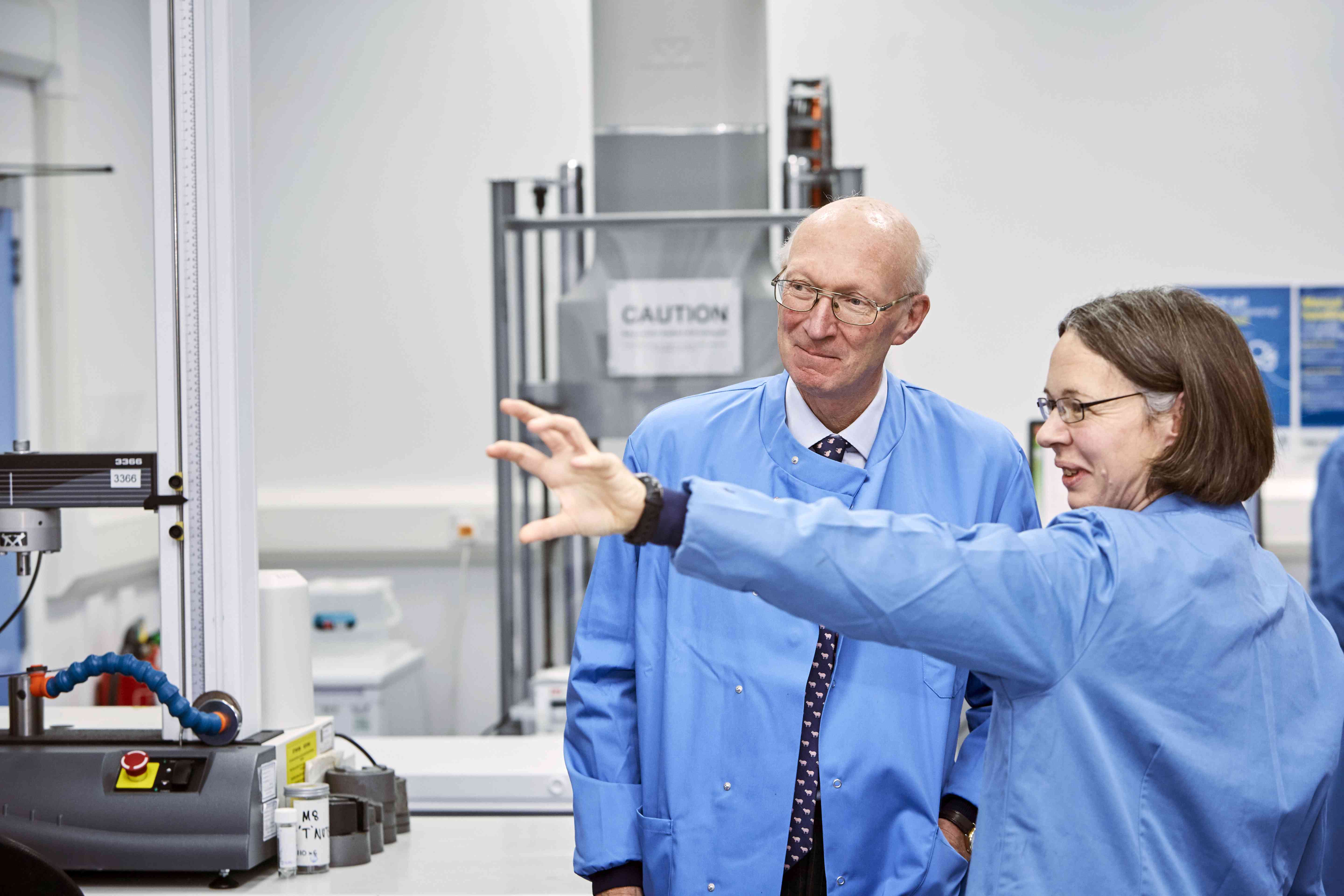
News
Government recognition for Leeds City Region medtech expertise
Date: December 8, 2017
Research into innovative medical technologies has been recognised in the Government’s Industrial Strategy Life Sciences Sector Deal.
The ‘deal’, between government and the life sciences industry, connecting academia and the public sector with major firms worldwide was announced this week by the Department for Business, Energy and Industrial Strategy and the Department of Health.
It highlights plans for a £350million investment in medical technology research and development which the region is already driving forward, to support UK industry as a whole.
This includes new investments such as Nexus, the University of Leeds’ forthcoming £40million innovation and enterprise centre, which is specifically listed as having a significant benefit for the wider region, together with the Leeds Health and Care Academy. The academy will deliver skills training for 57,000 people in the sector across Leeds.
Nexus: Driving business growth through collaboration
Nexus seamlessly connects business with world class research at the University of Leeds. It fuses academic insight and commercial expertise within a creative environment.
Due to launch in autumn 2018, Nexus will be a vibrant and creative community supported by state of the art facilities including lab space to foster collaboration. It will be staffed by a team of professionals whose role is to facilitate relationships between academics and the private sector.
Dr Martin Stow, Director of Nexus, said: “We will bring our world class ideas, concepts and technologies to deliver breakthrough solutions to real world, market-based problems.
“Increasing our engagement with industry will be a key feature of the University’s growth in the next decade, I am pleased both Greg Clark and Jeremy Hunt have recognised the importance that doing so will have across the life sciences sector.
“The challenge now will be for government to continue supporting both fundamental and applied research to ensure the UK retains its status as an internationally recognised research and development hub.”
Pioneering research and development
The Life Sciences Sector Deal report, published this week, highlights the role Nexus will play.
The report stated: “Partners across the Leeds City Region, including universities, local authorities, the NHS and industry are establishing a £350m investment programme in the Leeds City Region’s leading medtech hub, including, as part of a new Innovation Quarter in Leeds city centre, Nexus, a £40m Innovation Centre driven by the University of Leeds which will actively incubate and grow start-ups.”
The £350million figure is not new funding from Government, but was identified in a Science Innovation Audit report compiled by six universities in the Leeds City Region.
It is the culmination of existing investments and assets across the Leeds City Region, specific new investments, plus the scope and scale of future plans for programmes of investment.
Professor Lisa Roberts, Deputy Vice-Chancellor: Research and Innovation at Leeds, said recognition of the investment which Leeds and other universities and organisations, including research councils, had made in the region was significant.
She said: “The Leeds City Region has itself driven the growth of medical technologies research and innovation, to secure its reputation as the pre-eminent location for UK-based leadership in the field.
“Recognition of our immense strength in the Life Sciences Sector Deal report is very welcome, and we hope the Government will commit to supporting such high-impact capability.”
The audit identified that Government, industry and the NHS need to invest between £200 million and £250 million in the Leeds City Region’s medical technology sector over the next five years to enable it to exploit opportunities in the global health market.
Medical technologies research
Like all the universities involved in the Science Innovation Audit, for many years, the University of Leeds with its industry and NHS partners has excelled in developing new medical technologies and working with business to turn them into commercial products.
Among the current national programmes of research which Leeds leads are the EPSRC Medical Technologies Innovation and Knowledge Centre and the EPSRC Centre for Innovative Manufacturing in Medical Devices.
Through our interdisciplinary Institute of Medical and Biological Engineering, which spans the Faculty of Engineering and Faculty of Biological Sciences, expertise has focused on musculoskeletal and cardiovascular systems, covering:
- Joint Replacement
- Tissue Re-engineering
- Functional Spinal Interventions
>Visit the Institute’s website to explore an interactive skeleton showing how Leeds research has influenced medical procedures in the body and to learn about its successes, including:
- Securing more than £100m of research funding since 2008
- Collaborating with 44 other universities, as well as long-standing links with the private sector and the Leeds Musculoskeletal Biomedical Research Centre at Chapel Allerton Hospital
- Creating 22 patents
- Launching five spin out companies, among more than 100 to have began life at the University
Whilst he was a minister in the Department of Business, Energy and Industrial Strategy, Lord Prior of Brampton visited the Institute in November 2016 to learn about its ground breaking work.
Following his visit, Lord Prior said: “I was incredibly privileged to visit the Institute of Medical and Biological Engineering at the University of Leeds, and also to hear about the work of the Leeds Musculoskeletal Biomedical Research Centre.
“Together, they are providing vital research to the rest of the world on musculoskeletal issues. They offer hope for millions of people who suffer from a wide range of musculoskeletal and related conditions.”
Further information
Journalists with questions or interview requests should contact Peter Le Riche in the University of Leeds press office on 0113 343 2049 or email p.leriche@leeds.ac.uk
Back to News Overview

